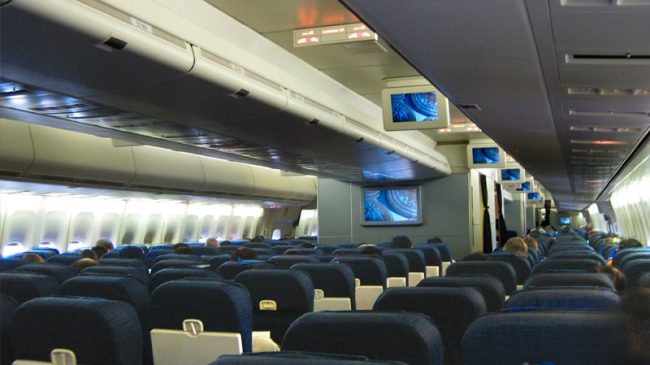Following the terrorist attacks of Sept. 11, 2001, governments across the world increased airport security, and rightly so. But in a hasty overreaction to that tragic day, Congress gave the job of screening passengers and baggage to a new federal agency: the Transportation Security Administration (TSA). As a result, taxpayers pay for more than 48,000 airport security screeners and TSA has requested nearly $8.2 billion in funding for 2011.
Creating the massive bureaucracy was a mistake. Even though the quality of airport screening was low before Sept. 11, it was not a failure of the “rent-a-guard” screeners that let those 19 terrorists board planes “armed” with box cutters. Those “weapons” were perfectly legal at the time. The real failure was one of policy, which didn’t make use of passenger history and law enforcement information that should have flagged most of the terrorists as suspicious characters who warranted enhanced scrutiny.
Even with today’s bloated TSA, that problem still exists. Consider that our various intelligence agencies failed to share vital information, and a suspected terrorist, the underwear bomber, was allowed to board – and tried to blow up – an international flight bound for Detroit on Christmas. Thankfully, the Obama administration last week took some needed steps to help fix this problem.
Following Sept. 11, most other countries increased their standards for airport security by letting each airport implement its own procedures under government supervision. In Europe, that led to nearly all major airports hiring certified private security firms to do their screening. Canada created a new federal agency to implement better screening but outsourced the actual screening. This kind of high-performance contracting permits better training and airport-specific flexibility (e.g., higher pay scales in Canada’s jobs-rich oil patch) and it better matches screener numbers to changing travel patterns and airport passenger levels.
In contrast, the system Congress and the George W. Bush administration created came with a massive conflict of interest: TSA serves as both the aviation-security regulator and the provider of key security. Who’s watching the watchmen? When it comes to baggage and passenger screening, TSA is regulating itself. As with any bureaucracy, its natural incentive is to hide errors and make itself look good. In addition to the obvious conflict of interest, this also makes for fragmented airport security.
Consider that airport perimeters, air cargo and other aspects of security are not operated and managed by TSA, but by airports. This lack of cohesion can create security gaps. In Europe, each airport is directly responsible for every aspect of its security, under strict government oversight.
The other mistake of the Bush administration and Congress was to let general taxpayers get stuck with well more than half the cost of airport security. Canada’s security ticket tax pays for 100 percent of airport security. In most European countries, a combination of airport charges to airlines and security taxes on tickets covers the complete cost of airport security.
Those who object to making airlines and passengers pay the full cost will argue that protecting against terrorism is like national defense, for which everyone properly pays via general taxes. However, many taxpayers never fly, and numerous others rarely fly. Airlines and frequent travelers like me get far more benefits from aviation security, and we should be paying the costs.
So now what?
First, TSA should be divested of its airport screening duties. TSA should regulate and oversee security, but each airport should be responsible for all aspects of its security (passenger and baggage screening, perimeter security, etc). Airports would be free to hire their own security forces or contract with TSA-certified firms.
Second, the cost of airport security should be paid for by those who use airports: a combination of airlines and passengers. This change would cut billions from the federal budget, eliminating the large portion of airport security costs not covered by current airport or airline security taxes. It also would make the costs of airport security more visible to airlines and travelers.
If these two changes are made, they will put much-needed scrutiny on the expensive, one-size-fits-all airport screening procedures in place now. Giving airports control over their security and moving to a more risk-based approach to passenger screening might well cut the cost of airport screening in half. It also would focus more attention on high-risk passengers like those we should have spotted on Sept. 11.
Robert Poole is director of transportation at Reason Foundation. He advised members of Congress and the White House on airport security following the Sept. 11 attacks. This column first appeared at Washingtontimes.com.

